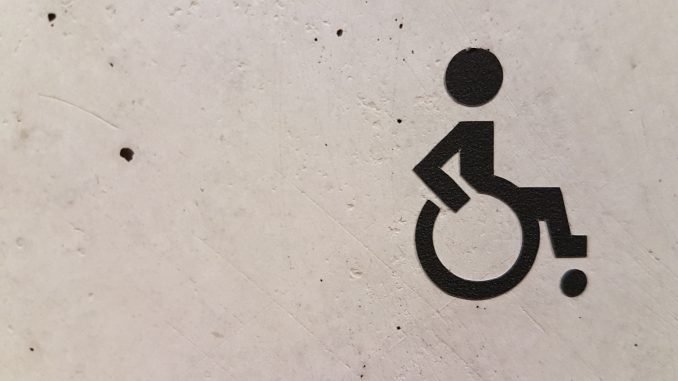

Over the past three weeks, my son has been convalescing at home from surgery on his foot and leg. We’d go stir crazy if we were stuck in the house all day, so we use his wheelchair to go for neighborhood strolls.
Our street is part of Chico’s Bikeway 99 route, and though greatly traveled by vehicles as well as cyclists, thanks to grant funding related to biking, it’s one of the better-paved streets in what I like to call our “city of potholes.”
The sidewalks are another story. The neighborhood dates back to the 1950s and ’60s, and its infrastructure looks like it. There are massive cracks and juts in the concrete, and in some places, there are no sidewalks at all. It makes our route a bit challenging, requiring me to manually dodge obstacles.
It’s reminded me of a story I wrote years ago about a woman in a motorized wheelchair who took the city to task over accessibility problems. The woman was encyclopedic about the Americans with Disabilities Act, the federal civil rights law that protects disabled people from discrimination, and she got my attention by the pointed yet polite way she addressed the City Council on such matters.
While doing background research for the story, I was told off the record by an ADA compliance expert that Chico had a reputation for doing little to no proactive accessibility work. Fixes generally came only as the result of big projects—say, major grant-funded improvements or private infill development—or in response to lawsuits.
I listened to my source’s complaints, but what was really eye-opening was shadowing her around town. It wasn’t an exaggeration to call the trip from downtown to her home, roughly five blocks away, dangerous for her and other people in wheelchairs. In fact, around that same time, my husband and I helped another woman get back into a motorized chair after taking a bad spill from hitting a raised downtown sidewalk.
The story generated positive feedback from several readers who were either disabled or had loved ones with disabilities. However, overwhelmingly, the response from local people without disabilities was unsympathetic. Some made excuses for the city, the most ridiculous of which was linking ADA noncompliance to the Great Recession and the subsequent straitened coffers. At the time, that was a recent development, whereas the federal law had been signed by former President George H.W. Bush in 1990, more than 20 years earlier.
Worse, though, was how so many viewed the woman as a pariah. Ultimately, I came away deeply disappointed in my community.
It’s been a full decade since that story was published. Some excellent improvements have been completed in that time, namely the reconfiguration of First and Second streets, including the roundabouts, and the state’s work on Eighth and Ninth streets, which now have fully connected sidewalks. But, again, those were big projects reliant on grant funding. Elsewhere, Chico’s infrastructure remains largely outmoded.
As for the city’s sympathy quotient, one would hope that local society has evolved on the issue. If it has, I’ve not seen the evidence. Anecdotally, based on my recent experiences, people are clueless.
On my aforementioned strolls with my son, we encounter cars parked over the sidewalk, forcing us into the street. In other places, rogue vegetation has taken over the path of pedestrian travel. I give a lot more leeway to neglectful gardeners than I do oblivious drivers, but the feral plants are still an annoyance.
Thing is, my son gets his cast off in another five weeks. What we’re experiencing is a temporary inconvenience. But that’s not the case for a lot of folks in this community, and they deserve better.
Melissa Daugherty is editor-at-large for the Chico News & Review


Be the first to comment